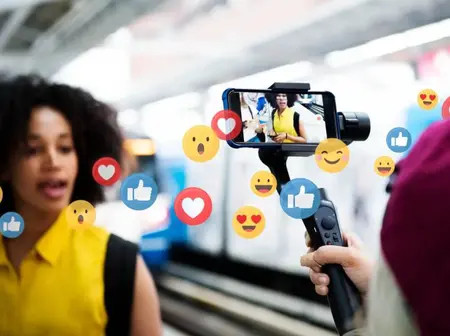The National Authority for the Campaign Against Alcohol and Drug Abuse (NACADA) has stepped up its crackdown on influencer-driven advertising, warning that it threatens efforts to curb substance abuse.
In a statement issued on Tuesday, September 23, the state corporation noted that online promotions are reaching youth more aggressively than conventional forms of advertising.
It further explained that the recently launched National Policy for the Prevention, Management and Control of Alcohol, Drugs and Substance Abuse aims to shield children from these harmful influences.
“Think influencer marketing is harmless? Think again. It reaches young Kenyans with a speed and precision that TV ads can’t match. This direct pipeline to our youth is a serious vulnerability,” NACADA stated.
“The National Policy for the Prevention, Management and Control of Alcohol, Drugs and Substance Abuse is our nation’s proactive defence. It severs this direct line to harm, creating a safer digital space for our children to grow. Awareness is the first step to action. Retweet if you stand for protecting the next generation from targeted substance abuse promotions.”
This statement is likely to bring the agency into another collision course with influencers and threatens to escalate into a civil war between them and NACADA, especially after the government agency’s policy threatened to impose a ban on celebrities and social media influencers from promoting alcoholic beverages.
NACADA’s policy to ban celebrity and influencer endorsements was viewed as effectively prohibiting alcohol brands from using celebrities, media personalities, influencers, or sports figures in promotional content. This drew uproar in the Kenyan showbiz space with a section of celebrities, including Femi One, accusing the government of frustrating a major source of income for this sector.
The policy was among many others that drew nationwide backlash, even though NACADA would reveal in a subsequent statement that the proposals were just that- proposals- and not an outright ban as initially reported.
The NACADA report focused on curbing misleading alcohol advertising and protecting minors from exposure to harmful content. A key proposal was the Watershed Ban, which would restrict alcohol advertisements on audio-visual platforms between 5:00 a.m. and 10:00 p.m.—a rule that also would apply to foreign broadcasts. Additionally, anyone featured in these adverts must be at least 25 years old.
The report also proposed a ban on Lifestyle Marketing, which links alcohol consumption to success, attractiveness, popularity, or social standing.
Strict limits were also proposed on digital advertising, including a ban on online and social media promotions of alcohol—whether local or foreign—something that would exterminate a major source of income for digital media platforms.
However, Kenyan comedian and scriptwriter, Eddie Butita, slammed the proposals through a statement released on Wednesday, July 30, hours after the authority released its National Policy for the Prevention, Management and Control of Alcohol, Drugs and Substance Abuse (2025) report.
Butita expressed concern about the move despite what NACADA terms as a valid intent to curtail alcohol abuse across the country, arguing that “the approach taken is misguided, uninformed, and fails to involve key stakeholders, especially content creators.”
He went on to outline that the main problem was not influencer marketing but rather the lack of regulation for the countless unmonitored posts promoting alcohol online, with the rising numbers on the internet that will not stop.
Butita argued that banning trained creators only removes structured, responsible messaging from the conversation and ends vital public sensitisation efforts. He further slammed the authority for failing to consult the creators before moving ahead with publishing the proposals.

Leave a Reply